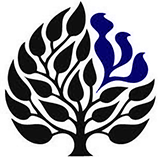
Saul Lieberman Institute of Talmudic Research of the Jewish Theological Seminary of America, Talmud Text Databank, Jerusalem
The Saul Lieberman Institute of Talmudic Research of the Jewish Theological Seminary of America is working to establish a website for its Talmud Text Databank, which will provide a searchable text version of all manuscripts, Genizah and other fragments, first printed editions of the Babylonian Talmud, and the Kaufmann manuscript of the Mishnah, with vocalization. The website, currently in development, will help make the Lieberman Institute’s Talmud Text Databank much more widely accessible and more frequently updated than it has been to date. The Saul Lieberman Institute of Talmudic Research was founded in 1985 by Shamma Friedman, the Benjamin and Minna Reeves Professor of Talmud and Rabbinics at The Jewish Theological Seminary, and is directed by him.
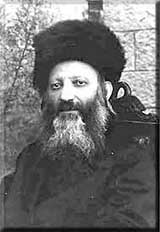
Yehudah Mirsky, Rabbi Abraham Isaac Kook Biography
Rabbi Abraham Isaac Kook was a major figure in early twentieth century Jewish life. This will be the first comprehensive biography of Rabbi Kook to appear in English in sixty years. Immigrating to Palestine from Eastern Europe in 1904 to become Chief Rabbi of Jaffa, Rabbi Kook eventually became the first Ashkenazic Chief Rabbi for Palestine. He was the first major figure to endorse Zionism as not only a political movement but as a vehicle for Jewish spiritual renaissance and redemption. Rabbi Kook’s writings explored the relationship between secular nationalism and religion and between Jewish identity and universal identity. He remains a major inspiration in Israel today. Until now, Rabbi Kook’s writings have been largely inaccessible to an English-speaking audience—the last full-length study of him in English was written in 1946. The book is scheduled to be published by Yale University Press as part of a series of biographies of major figures in Jewish history. Yehudah Mirsky, the author of the new biography, is a respected scholar of Rabbi Kook’s life and work.
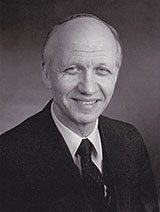
Targum Shlishi, Rabbi Dr. Irving (Yitz) Greenberg website, Miami, FL
Targum Shlishi is developing a website dedicated to the work of Rabbi Dr. Irving (Yitz) Greenberg, a leading modern Orthodox rabbi. The core of the website will be an online archive of audio lectures that Rabbi Greenberg has delivered over the course of his fifty-plus-year career, complemented by selected video and text lectures. Other sections of the website will include background information, a list of the many leading organizations he helped establish, and introduce Rabbi Greenberg’s writing – books, scholarly articles, monographs, short articles, and more. The website will be a valuable resource for both those familiar with Rabbi Greenberg’s work and a new generation that may not know of him. Much of the material that is being digitized for this website would otherwise be inaccessible to a broad audience, including the large selection of audio lectures from the 1970s on and many out-of-print monographs.

The Center for the Advancement of Jewish Education, Teacher Excellence and Creativity Award, Miami
Five teachers in Jewish educational institutions in Miami received the Teacher Excellence and Creativity Award for 2010, which comes with an $1,800 award to be applied to a continuing education opportunity. The Teacher Excellence and Creativity Award—for teachers in select Miami day schools, congregational schools, and early childhood programs—recognizes educators who promote excellence and creativity in their respective schools. Administered by the Center for the Advancement of Jewish Education (CAJE) Miami, the five educators who received the 2010 award are: Karen Alvarez of Lehrman Community Day School, Melissa Burger of Kesher LD, Rabbi Baruch Plotkin of Florence Melton Adult Mini School, Patti Sacks of Temple Beth Am Day School, and Haya Sidi of the Bet Breira Samu-El Or Olom Schimmel-Binder Religious School.
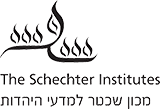
The Schechter Institutes, Inc., The Jo Milgrom Collection: Electronic Educational Archive for Judaism and the Arts, Philadelphia
Designed to enhance a contemporary, pluralistic Jewish curriculum, this website is an electronic archive containing images of four thousand works of art to be utilized by educators, academics, rabbis, and students in Israel and around the world. Targum Shlishi’s funding assisted in the early stages of launching this five-year venture, which is being developed in English and Hebrew. (A Russian-language version is also planned.) The site, which approaches the art from a Jewish academic and educational perspective, also includes artist biographies and essays. The first five hundred works are scheduled to be posted in spring 2008, with thirty-five hundred more works added over the following three years.

The Jewish Week, The Conversation: Jewish in America, New York
Organized by The Jewish Week, a New York–based independent community newspaper, in partnership with the Center for Leadership Initiatives, this annual conference assembles sixty-five prominent, diverse American Jews who are established in their fields. The purpose: to discuss the significance of being Jewish in the twenty-first century and speculate on the future of Jewish life in the United States. Among the participants in the 2010 event were Sara Hurwitz, dean of Yeshivat Mahara’t; Eric Yoffie, president of the Union for Reform Judaism; Craig Taubman, recording artist; and Nina Bruder, executive director of Bikkurim: An Incubator for New Jewish Ideas.

Areyvut, Jewish Teen Philanthropy Program: Helping Organizations Provide Essentials, Bergen County, New Jersey
Targum Shlishi supported the program H.O.P.E. (Helping Organizations Provide Essentials), Areyvut’s Jewish Teen Philanthropy Program at Yeshivat Noam in Bergen County, New Jersey. The goal of the program was to provide sixth- and seventh-grade students with the opportunity to learn about philanthropy, its impact, and the meaning of giving Jewishly. The students determined two nonprofit organizations to support after reviewing grant requests and meeting with potential grantees from several organizations, and presented a total of $1,000 to the recipient organizations, The Friendship Circle (a Chabad-affiliated nonprofit that helps families of children with special needs) and Habitat for Humanity. Students were also provided with opportunities to actively volunteer at other organizations. A non-profit organization established in 2002, Areyvut offers Jewish day schools, educators, synagogues, and community centers unique opportunities to empower and enrich youth by creating innovative and meaningful programs that make the core Jewish values—chesed (kindness), tzedakah (charity) and tikkun olam (social action)—a reality.

Gemara Berura, Torah Through Technology, Israel
Torah through Technology is a pilot program for Gemara Berura to partner with the Israeli government’s Department of Education to bring Gemara Berura to Israeli days schools. Gemara Berura is a learning tool that combines cutting-edge software with management consulting’s analytical and problem-solving approach to teaching Gemara. The Gemara Berura approach is interactive and remarkably effective, due largely to the fact that it encourages active learning and allows for differentiated instruction. It is being used in middle and high schools in more than forty day schools in the United States and was introduced to the UK last year. The initiative, spearheaded by Rabbi Meir Fachler, is now expanding its presence in Israel with support from Targum Shlishi. The central aim of Gemara Berura is to help learners analyze the unique structure of the Gemara text.

Lookstein Center at Bar-Ilan University, Jewish Education Program in the Baltic, Baltic states
This innovative project is designed to enhance Jewish education in the Baltic states. Run by the Lookstein Center at Bar-Ilan University, the initiative provides intensive training to teachers at four day schools in the Baltic states that together serve approximately one thousand students. The goal is to improve the Jewish Studies programs at all four schools. The initiative launched in 2004 when a team of educators from the Lookstein Center visited the schools and identified the challenges and obstacles facing the Jewish Studies programs. Among the issues identified by the team were deficiencies in the curriculum in core Jewish subjects, lack of materials such as textbooks, and an insufficient Jewish knowledge base and Hebrew language base on the part of the educators. The Lookstein Center then organized a professional development program for local teachers that was designed to raise the standard and quality of instruction. The project has already made great strides. Through extensive feedback from participants and a continuing survey of the needs in the region, the curriculum and materials continue to develop. The program has developed a model that can be adapted to other communities in Eastern Europe and the FSU. The Lookstein Center for Jewish Education of the School of Education at Bar-Ilan University was established to promote quality Jewish education in the Diaspora.

The Union for Traditional Judaism, Taking the MTV Challenge, North America, Europe, and Israel
Taking the MTV Challenge is a cutting-edge media curriculum that teaches teens and adults to apply traditional Jewish values to the interpretation of difficult material from media sources such as television shows and the Internet. Targum Shlishi’s support is to help the program develop new lessons. Taking the MTV Challenge teaches students to deconstruct visual images and filter the messages they encounter through the prism of Jewish values found in classical texts such as the Bible, Talmud, and other rabbinic sources. Created in 1997 by the Union for Traditional Judaism, Taking the MTV Challenge is a response to the prevalence of negative media images and messaging relating to subjects such as violence, promiscuity, misogyny, drug abuse, cynicism, and inter-group hatred. The program is in use at more than 350 locations in North America, Europe, and Israel, with new lesson plans continually being developed. The Union for Traditional Judaism is a trans-denominational education and outreach organization that promotes traditional Jewish values among all Jews.
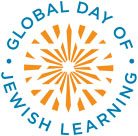
Aleph Society, Rabbi Steinsaltz’s Global Day of Jewish Learning, worldwide
The Global Day of Jewish Learning is an initiative of Rabbi Adin Steinsaltz’s Aleph Society. A series of “big questions” will be answered online by Rabbi Adin Steinsaltz, with new questions posting weekly for several weeks leading up to the Global Day of Jewish Learning on November 7. The questions are intended to engage everyone from the most secular to the most religiously observant Jews in a global dialogue about Judaism’s take on large issues such as good and evil, heaven and hell, sex and relationships, and more. The initiative is a way to honor and celebrate Rabbi Steinsaltz’s completion of the forty-fifth and final volume of his translation (into modern Hebrew) and commentary on the Talmud, a monumental task he began in 1965. The Aleph Society estimates that more than three hundred communities worldwide will participate on November 7 along with one thousand house parties. Rabbi Steinsaltz is a distinguished scholar, teacher, mystic, and social critic. He has written some sixty books and hundreds of articles on the Talmud, Kabbalah, and Chasidut. The Aleph Society was established in 1988 to support Rabbi Adin Steinsaltz’s mission to make the Talmud and other sources of Jewish knowledge accessible to all Jews.

Targum Shlishi, Dissertations in Jewish Studies, Miami, Florida
Fifteen doctoral students from the United States and Israel received grants from Targum Shlishi to support research for their dissertations on subjects related to Jewish Studies. Ranging from ancient to contemporary times, their projects include studies of Jewish theology, literature, political thought, and education, as well as the histories of particular Jewish communities. This is the fourth year Targum Shlishi has offered this grant; more than one hundred students applied for grants, more than doubling the number of applicants received in any of the first three years. In response Targum Shlishi offered, for the first time, two different levels of support: four grants of $2,500 and eleven of $1,000.
The awardees receiving grants of $2,500 are: Geoffrey Claussen, Exploring the Moral Vision of Rabbi Simhah Zissel (Broida) Ziv (1824–1898), Jewish Theological Seminary (Department of Jewish Thought); Jacob Ari Labendz, Jews and the State in Communist Central Europe: Czechoslovakia and Its Neighbors, 1945-1989, Washington University in St. Louis (History Department); Rena N. Lauer, Vitality on the Margins: A Notarial Case Study of Jews in Venetian Crete, 1300–1500, Harvard University (Department of History);
Erin Leib Smokler, God in the Ruins: Jewish Theology in the Holocaust, University of Chicago (Committee on Social Thought);
The awardees receiving $1000 grants are: Lilach Ashoulin, Offspring of Righteous Among the Nations: The Place and Meaning of the Story of Rescuers of Jews during the Holocaust in the Lives of their Adult Offspring, University of Haifa (Department of Counseling and Human Development); Natalie Belsky, Precarious Survival: Soviet Jewish Life in Evacuation and the Tumultuous Return, 1941–1949, University of Chicago (Department of History); Miryam Brand, At the Entrance Sin is Crouching: The Source of Sin and Its Nature as Portrayed in Jewish Texts of Antiquity, New York University (Skirball Department of Hebrew and Judaic Studies); Arie Dubnov, Between Zionist and Liberalism: Isaiah Berlin and the Dilemma of the Jewish Liberal Intellectual, Hebrew University (History Department); Amir Engel, Gershom Scholem: In Search of the Origin of Jewish Politics, Stanford University (Department of German Studies); Ella Florsheim, The Revival of Yiddish Culture in the Displaced Persons Camps in Germany through the Prism of Holocaust Survivors’ Newspapers, Hebrew University (Yiddish Department); Danna Livstone, Jewish Parents and Religious School: Recollections and Decisions, Jewish Theological Seminary (Department of Jewish Education); Rachel Mincer, Minhagim Books: Middlebrow Literature of the Late Medieval Period, Jewish Theological Seminary (History Department); Vadim Putzu, Bottled Poetry/Quencher of Hopes: Wine as a Symbol and as an Instrument between Sfedian Kabbalah and Hasidism, Hebrew Union College (Jewish Institute of Religion); Dov Weiss, Confrontational Theology in Post-Classical Rabbinic Literature, University of Chicago (Divinity School); Hannah Wortzman, Feminist Readings in Post-Biblical Literature: Rape Stories in Classical Antiquity, Hebrew University (Department of Jewish Thought).

